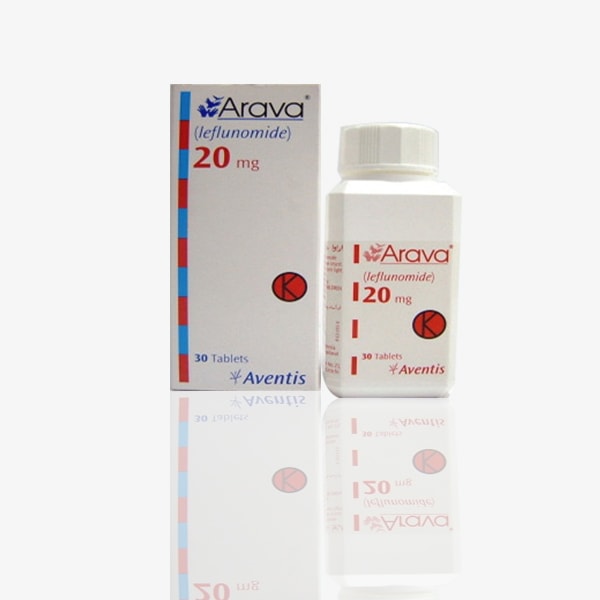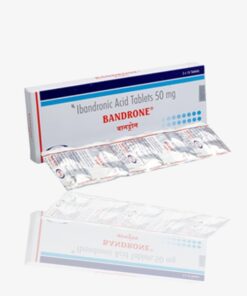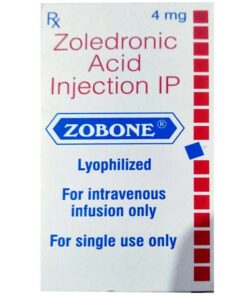Buy Arava : Leflunomide 20 mg Tablets Online
$63.77
Brand Name : Arava
Composition : Leflunomide
Manufactured by : Sanofi-Aventis Pasteur India Pvt. Ltd.
Strength : 20 mg
Form : Tablets
Packing : Pack of 30 Tablets
Prescription Required *
Arava is a brand name for the generic drug Leflunomide. It belongs to a class of medications called disease-modifying antirheumatic drugs (DMARDs). It is used to treat rheumatoid arthritis, an autoimmune disease that affects the joints. It works by reducing inflammation and slowing down the progression of the disease.
Uses:
Arava is primarily used to treat rheumatoid arthritis, a chronic autoimmune disease that affects the joints. It can also be used to treat psoriatic arthritis, another type of arthritis that affects the skin and joints. Arava works by reducing inflammation and slowing down the progression of the disease.
HOW TO USE:
Arava should be taken orally, usually once daily, with or without food. The tablets should be swallowed whole, not crushed or chewed. It is important to take Arava at the same time each day to ensure that the medication is effective. It may take several weeks to see the full benefit of the medication.
Storage Conditions:
Arava tablets should be stored at room temperature, away from heat and moisture. They should be kept out of the reach of children and pets.
Mechanism of Action:
Arava works by reducing inflammation and slowing down the progression of rheumatoid arthritis. It does this by inhibiting the activity of certain white blood cells that are responsible for promoting inflammation in the joints. By reducing inflammation, Arava helps to relieve pain, swelling, and stiffness in the joints and prevent damage to the joints.
Precautions:
Before taking Arava, it is important to tell your doctor if you have any allergies or medical conditions. Patients with liver disease, kidney disease, or immunodeficiency should inform their healthcare providers before taking Arava as this medication suppresses the immune system.
Contraindications:
Arava is contraindicated in patients who are allergic to Leflunomide or any of the ingredients in this medication. It is also contraindicated in pregnant women or women who may become pregnant, as it can harm the developing fetus.
Drug Interactions:
Arava can interact with several other medications, including methotrexate, non-steroidal anti-inflammatory drugs (NSAIDs), and warfarin. Patients should tell their doctor about all the medications they are taking before starting Arava.
Overdose:
In case of an overdose of Arava, seek medical attention right away. Symptoms of an overdose may include diarrhea, stomach pain, and reduced kidney function.
Side Effects:
The most commonly reported side effects of Arava include diarrhea, nausea, and stomach pain. Other side effects may include headache, dizziness, and hair loss. Arava can also suppress the immune system, which can increase the risk of infections. Some serious side effects that require immediate medical attention include liver problems, lung problems, and decreased blood cell count.
Be the first to review “Buy Arava : Leflunomide 20 mg Tablets Online” Cancel reply
Related products
Osteoporosis Arthritis
Buy Prolia (denosumab) Injection 1 pre-filled syringe 60mg/ml Online For Sale
Osteoporosis Arthritis
Osteoporosis Arthritis
Osteoporosis Arthritis
Osteoporosis Arthritis
Osteoporosis Arthritis
Osteoporosis Arthritis
Buy Scapho : Secukinumab 150 mg/ml Injection Online For Sale
Osteoporosis Arthritis













Reviews
There are no reviews yet.